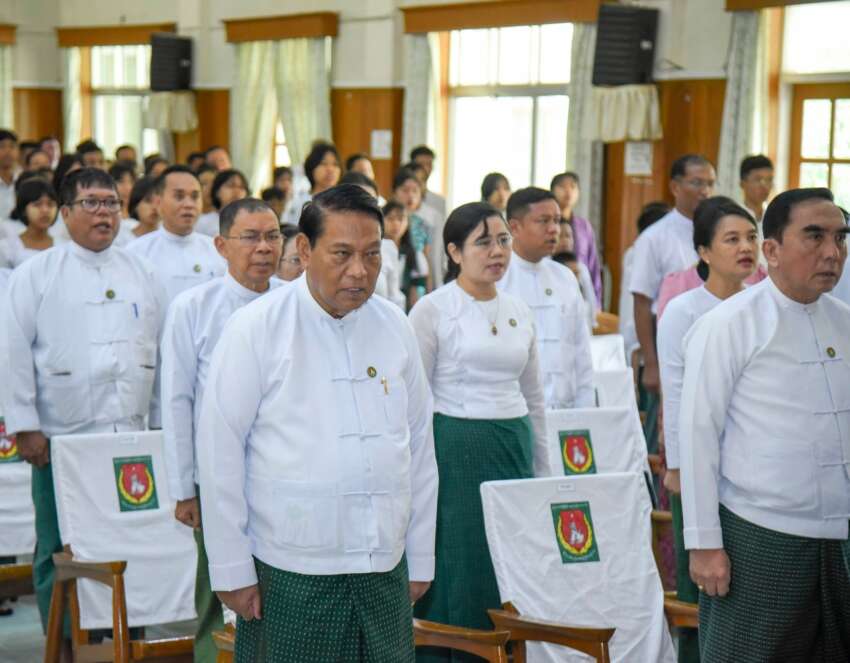
According to a source within the Union Solidarity and Development Party (USDP), there is growing internal dissatisfaction over the transfer of 489 military personnel, ranging from high-ranking generals to office administrators and sergeant clerks, into the party under Min Aung Hlaing’s orders. The source revealed that parliamentary constituencies have been specifically reserved for these generals, and party members are widely dissatisfied with how Chairman Khin Yi and the Central Executive Committee are giving priority treatment to these ‘parachute’ military officials.
A party member expressed that while the USDP has consistently faced opposition criticism, the mass entry of military generals and officers near the election period has damaged the party’s dignity. Both aspiring parliamentary candidates and township-level party officials are reportedly unhappy with the situation. In the first phase alone, over 100 parliamentary candidate positions must be allocated to incoming military personnel, with more phases expected to follow. This has created significant tension within the party structure.
Furthermore, party members have expressed dissatisfaction with Chairman Khin Yi and the Central Executive Committee’s actions, viewing Khin Yi as someone who merely complies with military wishes while disregarding party members’ perspectives. There is a notable contrast with the previous chairman, Than Htay’s leadership, during which military appointees were kept under party rules and regulations. Under Khin Yi’s leadership, however, military transferees are being treated as VIP guests, according to party members.
There is resistance within the USDP regarding cooperation with election campaign activities for incoming military general candidates. Township-level party officials have indicated their unwillingness to support the election campaigns of non-local generals appointed from above to their constituencies. While the USDP plans to contest in all constituencies in the upcoming December election, analysts suggest that these internal disagreements could impact the party’s future. The situation highlights the growing tension between traditional party members and the influx of military officials, potentially affecting the party’s unity and electoral prospects.



